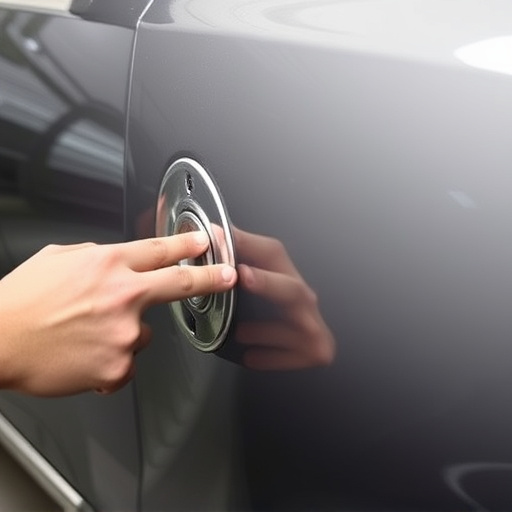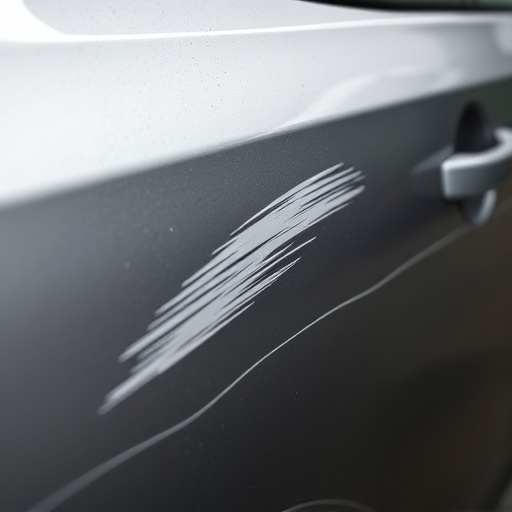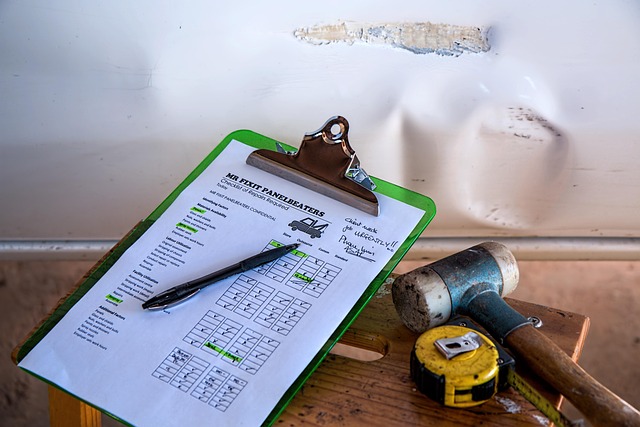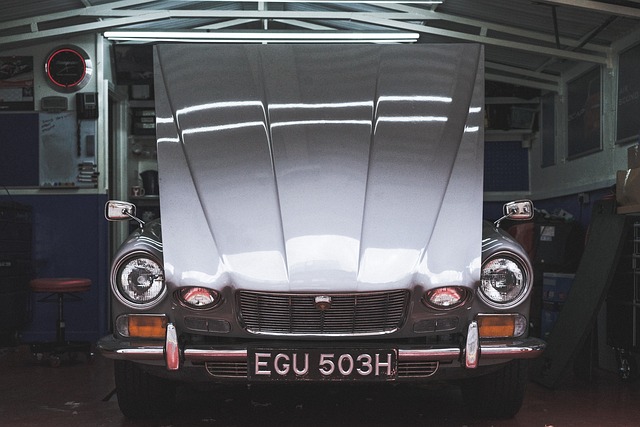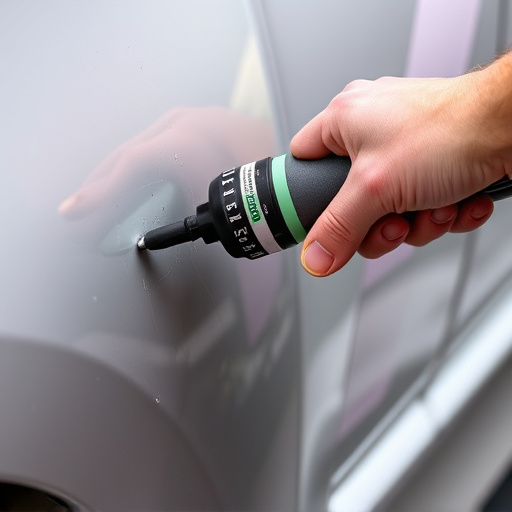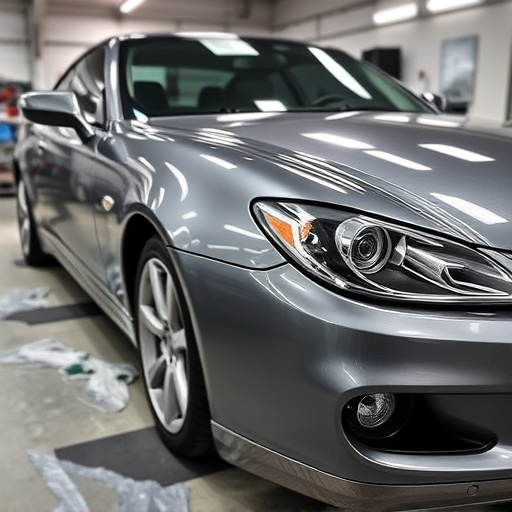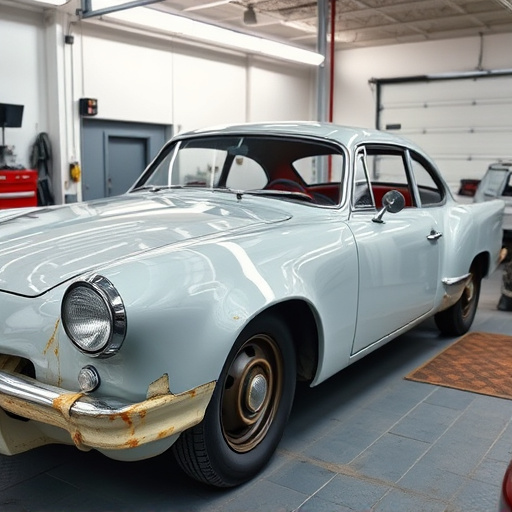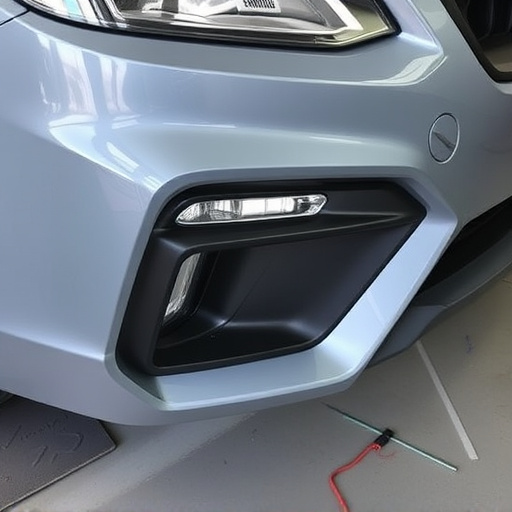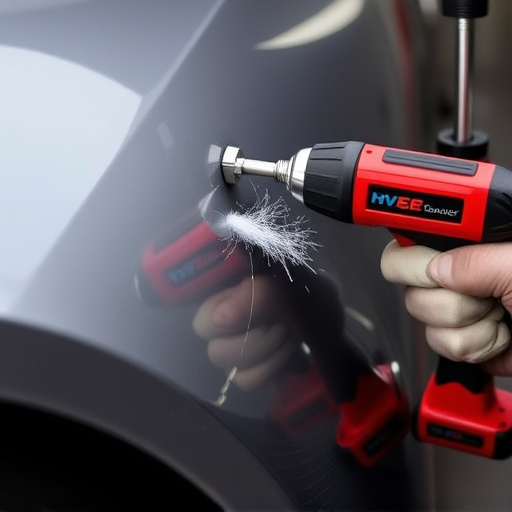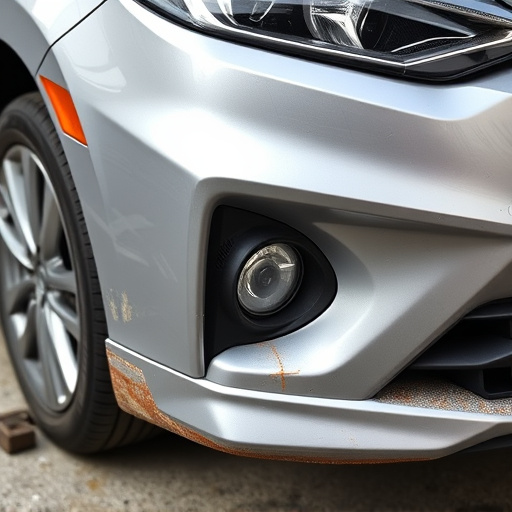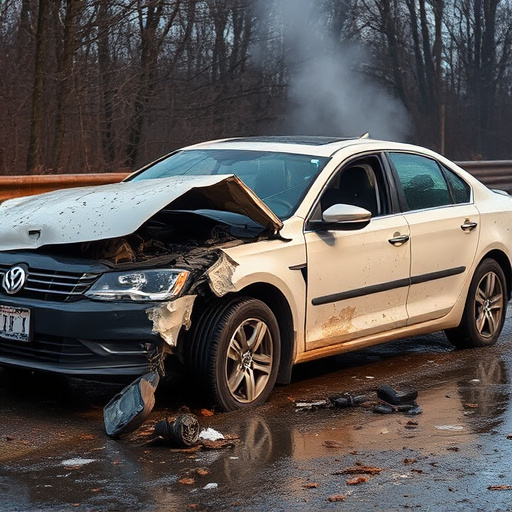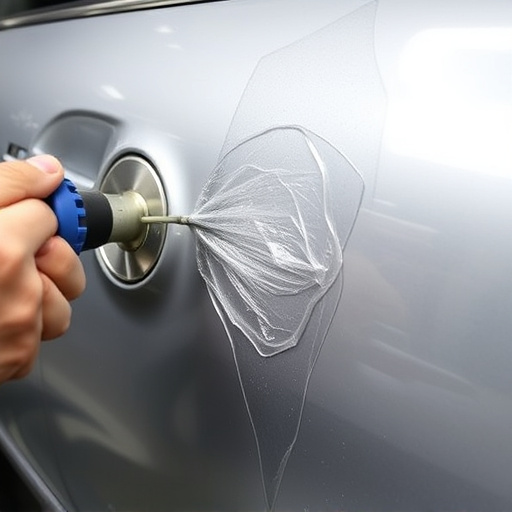Mercedes impact sensor calibration is essential for accurate crash detection and timely airbag deployment, ensuring safer driving and reliable collision repairs. Regular 6-month checks, sensor inspections, replacements, and diagnostic tools maintain precision, streamlining repair processes for modern and classic cars, ultimately saving lives.
Mercedes impact sensors play a vital role in accurate crash detection, ensuring timely response and safety. This article delves into the intricate functionality of these sensors and highlights the critical importance of proper Mercedes impact sensor calibration. Understanding how calibration improves crash detection accuracy is essential for maintaining optimal vehicle safety systems. We also explore best practices for regular checks to ensure your Mercedes’ sensors are always ready to protect you on the road.
- Understanding Mercedes Impact Sensor Functionality
- The Role of Calibration in Crash Detection Accuracy
- Best Practices for Regular Sensor Calibration Checks
Understanding Mercedes Impact Sensor Functionality
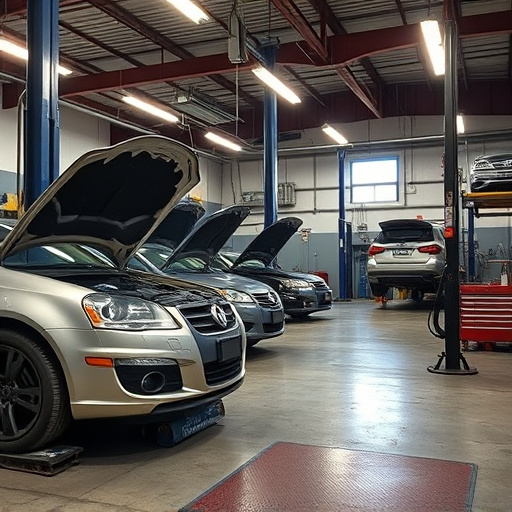
Mercedes Impact sensors are crucial components designed to detect and measure the force and intensity of a vehicle collision. These advanced sensors play a pivotal role in enhancing safety features, ensuring accurate crash detection timing. When a vehicle is involved in a fender bender or any type of collision, these sensors promptly register the impact, sending critical data to the vehicle’s control system. This information triggers various safety mechanisms, like airbag deployment and emergency call services, within milliseconds.
Proper Mercedes impact sensor calibration is essential for their optimal performance. Over time, these sensors can drift in readings due to environmental factors or wear and tear. A calibrated sensor ensures precise measurements, which is vital for accurate crash detection. This process aligns the sensor’s response with industry standards, guaranteeing reliable data during a vehicle collision repair at a vehicle body shop, ultimately contributing to safer driving conditions.
The Role of Calibration in Crash Detection Accuracy

Mercedes impact sensor calibration plays a pivotal role in enhancing the accuracy and reliability of crash detection systems. Regular calibration ensures that sensors are responsive to even minor impacts, preventing false alarms and misdiagnoses. In the event of an actual collision, precise timing is crucial for deploying airbags and other safety features effectively. Imagine the difference between a split second—the time it takes for a properly calibrated sensor to recognize a crash versus an uncalibrated one. The former could mean the difference between life and death or at least minimizing injuries through timely activation of safety mechanisms.
Moreover, Mercedes impact sensor calibration is essential in the context of collision repair centers and classic car restoration. Accurate data from calibrated sensors aids mechanics in diagnosing damage accurately, especially when dealing with intricate vehicle systems. This precision streamlines the repair process for both modern and vintage cars, ensuring that every component is assessed correctly. For instance, a dent removal process benefits from this calibration as it helps identify deeper or more subtle damages that might be missed by uncalibrated sensors, ultimately enhancing safety and quality of repairs at these centers.
Best Practices for Regular Sensor Calibration Checks
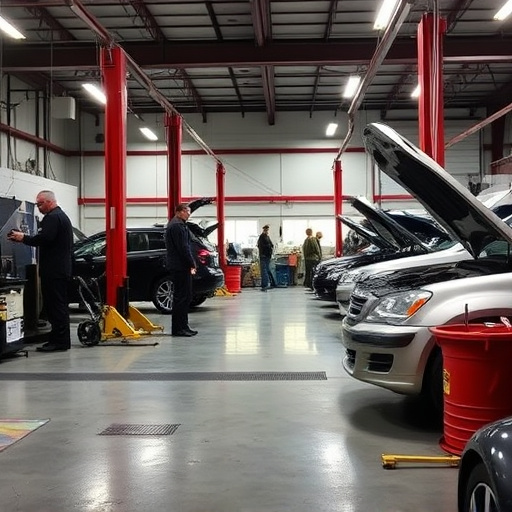
Regular calibration checks are essential for Mercedes impact sensors to ensure accurate crash detection timing. Here are some best practices to maintain optimal sensor performance. Firstly, schedule calibration checks at recommended intervals, typically every 6 months or after significant vehicle repairs, such as dent removal or autobody repairs. These repairs can sometimes cause minor misalignments in the sensor’s positioning, leading to inaccurate data readings over time.
During these checks, ensure that all sensors are thoroughly inspected for any signs of damage, corrosion, or debris accumulation. Clean and replace any faulty components promptly to prevent compromising the overall calibration accuracy. Additionally, it’s advisable to use specialized diagnostic tools designed to test and adjust sensor performance precisely, ensuring the vehicle’s airbag system remains prepared for rapid and reliable deployment when needed, much like how a car paint repair expert ensures seamless color matching after restoration.
Mercedes impact sensor calibration is a critical component in ensuring accurate crash detection timing, which can significantly enhance vehicle safety. By understanding the functionality of these sensors and implementing best practices for regular calibration checks, car manufacturers like Mercedes can minimize errors and maximize the effectiveness of their collision avoidance systems. Regular calibration ensures that the vehicle’s response to impacts is swift and precise, ultimately saving lives and reducing the severity of accidents on the road.
